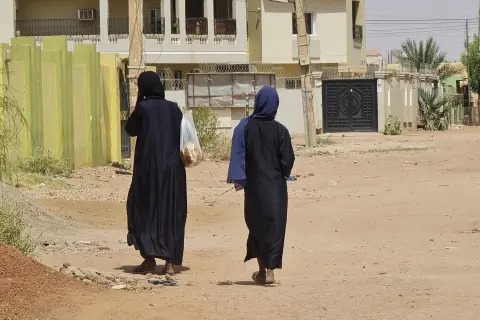“Khartoum is not Safe for Women!” (2-4)

Sudan Events – Agencies
Despite the serious harm to the health of survivors, they face huge obstacles in accessing critical and comprehensive emergency health care, including emergency contraception, post-exposure prophylaxis, abortion, and psychosocial support.
Warring parties’ deliberate attacks on healthcare facilities, medical personnel and local responders, and unlawful restrictions on medical supplies have impeded access to critical care.
SAF forces have used air-dropped munitions and both parties have shelled health facilities in Khartoum while RSF have been present in and around health centers and occupied hospitals. A doctor from a hospital in Khartoum providing essential services to survivors of sexual violence explained the hospital’s relocation in October 2023, because of incessant harassment by the RSF: “The RSF continued to be present around the hospital for weeks. They would search us, the health staff, insult us and shoot around our legs when we tried to enter or leave our hospital. That added to the continued threats, looting of [the belongings of] patients along the way as they tried to reach the hospital, forced us to close the hospital and move to a place where the RSF was less present.”
Ongoing fighting throughout densely populated areas of Khartoum and its sister cities as well as warring parties’ restrictions on civilians’ movement have also hampered survivors and responders’ ability to safely move around and access care.
Willful obstruction of assistance, widespread looting, and a very limited international aid presence have contributed to a general lack of medical supplies and trained medical professionals. Interviewees believe that most survivors had missed urgent interventions that must take place within days of the rape, including emergency contraception (120 hours) and prophylaxis against HIV infection (72 hours). Service providers said they had to adapt the treatment protocol to respond to the context and raised concerns about limited access to post-exposure prophylaxis (PEP) critical to preventing HIV/Aids infections and medication to prevent immunoglobulin and Hepatitis B infections.
Both warring parties have prevented a comprehensive response to gender-based violence. SAF has willfully restricted humanitarian supplies, including medical supplies, and aid workers’ access, including by imposing a de facto blockade on drugs entering RSF-controlled areas of Khartoum since at least October 2023, in violation of international humanitarian law. The RSF have pillaged medical supplies, a potential war crime.
Local responders, including health professionals and volunteers working in community-level networks notably the emergency response rooms, have borne the brunt of the response to this sexual violence crisis. Both warring parties have intimidated and arbitrarily detained doctors, nurses, and emergency care responders because of their work, including providing support to survivors of rape. RSF members have on occasion also perpetrated acts of sexual violence against providers of health care and other services.
The RSF have also tried to prevent their acts of sexual violence from being documented or reported. In the early months of the conflict, RSF members detained a health professional from a hospital in Khartoum, questioned her for several hours, and threatened her. According to a healthcare provider, an RSF member who detained her said: “You should not provide information about us to the health ministry or to the United Nations. The sexual violence cases you are reporting about should not be reported and you should stop receiving SGBV victims in the hospital…. I can kill you right here right now if I want to, you should be careful and stop sending reports.”



